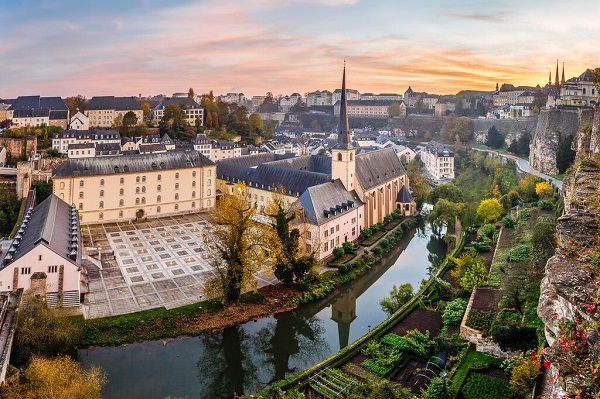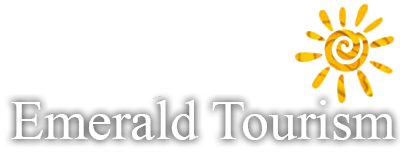Nestled between Belgium, France, and Germany, lies the enchanting land of Luxembourg, a hidden gem in Europe waiting to be discovered. With its fairytale-like charm, natural beauty, and rich history, Luxembourg offers a unique experience like no other.
Explore its picturesque capital city, also called Luxembourg, known for its stunning blend of medieval and modern architecture. Marvel at the ancient fortresses, wander through the charming cobblestone streets, and indulge in the vibrant culinary scene that showcases the fusion of French, German, and Belgian influences.
Immerse yourself in the country’s breathtaking landscapes, from rolling hills and dense forests to quaint villages and enchanting castles. Discover the Mullerthal Region, often referred to as Little Switzerland, with its striking rock formations and captivating hiking trails.
Uncover Luxembourg’s deep historical roots through its museums, ancient ruins, and UNESCO World Heritage sites. Don’t miss the opportunity to visit Vianden Castle, a majestic medieval fortress that offers breathtaking views of the surrounding countryside.
Whether you’re a nature enthusiast, history buff, or simply seeking a tranquil escape, Luxembourg is the perfect destination to satisfy your wanderlust. Embark on a journey to this hidden gem and let its enchanting charms captivate your heart.
Page Contents
Attiva/disattivaThe rich history of Luxembourg
Luxembourg may be small in size, but it is big on charm and beauty. Tucked away between larger European countries, it often gets overlooked by travelers, making it a hidden gem waiting to be explored. The country’s unique fusion of cultures, stunning landscapes, and rich history make it a truly enchanting destination.
Luxembourg offers a sense of tranquility that is often hard to find in more popular tourist destinations. Its small towns and villages exude charm, with their cobblestone streets, quaint cafes, and colorful houses. The country’s commitment to preserving its natural landscapes and cultural heritage adds to its allure, making it a haven for those seeking an authentic and untouched experience.
Exploring Luxembourg’s stunning natural landscapes
Luxembourg’s history dates back thousands of years, and its strategic location has made it a coveted territory throughout the ages. From Roman rule to the Middle Ages, the country has seen the rise and fall of empires and has left behind a rich tapestry of historical sites.
One of the most significant historical landmarks in Luxembourg is the Bock Casemates, a vast underground network of tunnels and fortifications that once served as a defensive stronghold. These tunnels offer a glimpse into the country’s military past and provide stunning views of the city.
Another must-visit historical site is the Luxembourg City History Museum, located in the heart of the capital. Here, you can explore the city’s history through interactive exhibits and artifacts, gaining a deeper understanding of Luxembourg’s cultural heritage.
Luxurious castles and palaces in Luxembourg
Luxembourg’s natural landscapes are nothing short of breathtaking. From rolling hills and dense forests to meandering rivers and picturesque valleys, the country offers a diverse range of outdoor experiences.
One of the most stunning natural attractions in Luxembourg is the Mullerthal Region, often referred to as Little Switzerland. This picturesque region is known for its unique rock formations, lush greenery, and enchanting hiking trails. As you explore the Mullerthal Trail, you’ll be treated to stunning views of sandstone cliffs, cascading waterfalls, and hidden caves.
For those seeking a more leisurely experience, Luxembourg’s Moselle Valley is a must-visit. This scenic wine region is dotted with vineyards and charming villages, offering the perfect setting for a relaxing getaway. Take a leisurely bike ride along the Moselle River, stopping at local wineries to sample some of the region’s finest wines.
The vibrant cultural scene of Luxembourg
Luxembourg is home to a wealth of stunning castles and palaces that showcase the country’s rich history and architectural beauty. These magnificent structures offer a glimpse into the past and provide a fairy tale-like backdrop for exploration.
One of the most iconic castles in Luxembourg is Vianden Castle, located in the picturesque town of Vianden. This medieval fortress dates back to the 9th century and is perched on a hill, offering panoramic views of the surrounding countryside. Step inside and wander through its grand halls, admire the intricate tapestries, and imagine the stories that unfolded within its walls.
Another must-visit castle is the Grand Ducal Palace, located in the heart of Luxembourg City. This impressive palace serves as the official residence of the Grand Duke of Luxembourg and is open to the public during the summer months. Take a guided tour to admire its opulent interiors and learn about the country’s monarchy.
Traditional cuisine and culinary delights in Luxembourg
Despite its small size, Luxembourg boasts a vibrant cultural scene that is sure to captivate visitors. The country’s unique blend of French, German, and Belgian influences is reflected in its art, music, and theater.
Art enthusiasts will appreciate the impressive collections at the Luxembourg City Museum of Art, which showcases works by both local and international artists. The museum also hosts rotating exhibitions, ensuring there is always something new to discover.
Music lovers shouldn’t miss out on the opportunity to attend a concert at the Philharmonie Luxembourg. This world-class concert hall attracts renowned musicians from around the globe and offers a diverse range of performances, from classical symphonies to contemporary jazz.
Outdoor activities and adventure in Luxembourg
Luxembourg’s culinary scene is a true reflection of its unique blend of cultures. Influenced by French, German, and Belgian cuisines, the country offers a tantalizing array of dishes that are sure to please even the most discerning palate.
Start your culinary journey with a visit to a traditional Luxembourgish restaurant, where you can sample dishes such as Judd mat Gaardebounen (smoked pork collar with broad beans) or Bouneschlupp (a hearty green bean soup). Pair your meal with a glass of local wine or beer to complete the experience.
For those with a sweet tooth, Luxembourg is a paradise. Don’t miss out on trying the country’s famous Gromperekichelcher (potato fritters) or Bretzelsonndeg Kuch (a traditional brioche pastry). Finish off your meal with a cup of aromatic coffee or a glass of Crème de Cassis, a blackcurrant liqueur that is a popular local specialty.
Tips for traveling to Luxembourg
Luxembourg’s diverse landscapes make it the perfect destination for outdoor enthusiasts and adventure seekers. From hiking and cycling to kayaking and rock climbing, there is something to suit every taste.
The Mullerthal Region, with its striking rock formations, offers a paradise for hikers. Follow the well-marked trails and discover hidden waterfalls, secret caves, and panoramic viewpoints. The region’s dense forests and meandering rivers also provide the perfect backdrop for a peaceful kayak or canoe trip.
Cyclists will be delighted by the country’s extensive network of cycling paths, which crisscross the entire country. Whether you prefer leisurely rides through picturesque villages or challenging mountain bike trails, Luxembourg has it all.
Conclusion: Why you should visit Luxembourg
1. Best time to visit: The best time to visit Luxembourg is during the spring and summer months when the weather is mild and the landscapes are in full bloom. However, the country’s charming Christmas markets and festive atmosphere make winter a magical time to visit as well.
2. Getting around: Luxembourg has an excellent public transportation system, making it easy to explore the country without a car. The trains and buses are reliable and efficient, and the country’s small size means that travel times are short.
3. Language: The official languages of Luxembourg are Luxembourgish, French, and German. English is widely spoken, especially in tourist areas, so you shouldn’t have any trouble communicating.
4. Currency: The currency in Luxembourg is the Euro (EUR). Credit cards are widely accepted, but it’s always a good idea to carry some cash for smaller establishments.
5. Safety: Luxembourg is considered one of the safest countries in the world, but it’s always important to take basic precautions. Keep an eye on your belongings, especially in crowded tourist areas, and be aware of your surroundings.
